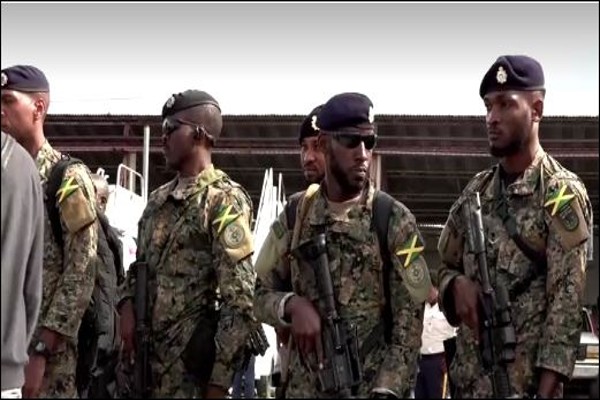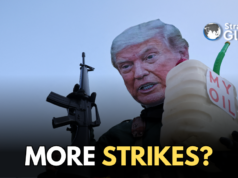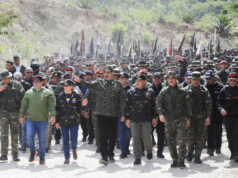Haiti’s Caribbean Port Services (CPS) said on Thursday it is shutting off land access to its port in the capital Port-au-Prince, a key corridor for supplies in the country and one that has been paralyzed by attacks from armed gangs.
“CPS will shut its barriers to all types of land-based traffic from Sept. 26 to Sept. 29,” it said in a statement, saying this should allow the army and national police to pursue
their efforts to secure the area.
A shipping official told Reuters this week that ships were being shot at, preventing them from docking and unloading containers, while authorities have reported the kidnapping of
two Filipino crew members from a cargo vessel in the port.
Haitian leaders speaking at the United Nations’ General Assembly this week have warned of worsening insecurity despite the partial deployment of a U.N.-backed security force, whose initial mandate expires in less than a week.
Powerful gangs, armed with weapons largely trafficked from the United States, have united in the capital under a common alliance and now control most of the city and are expanding to nearby areas.
Over 700,000 people have been internally displaced – nearly double the figure from six months ago – many residing in makeshift camps in schools and without a fixed source of income as food becomes increasingly expensive and hunger rates soar.
Haiti’s main seaports and international airport closed for nearly three months earlier this year as violence peaked at the end of February, in an outbreak that saw thousands broken out of prison and the last prime minister resign.
(REUTERS)
In a career spanning three decades and counting, Ramananda (Ram to his friends) has been the foreign editor of The Telegraph, Outlook Magazine and the New Indian Express. He helped set up rediff.com’s editorial operations in San Jose and New York, helmed sify.com, and was the founder editor of India.com.
His work has featured in national and international publications like the Al Jazeera Centre for Studies, Global Times and Ashahi Shimbun. But his one constant over all these years, he says, has been the attempt to understand rising India’s place in the world.
He can rustle up a mean salad, his oil-less pepper chicken is to die for, and all it takes is some beer and rhythm and blues to rock his soul.
Talk to him about foreign and strategic affairs, media, South Asia, China, and of course India.





